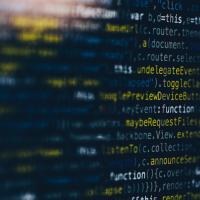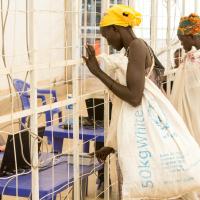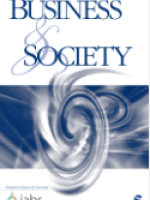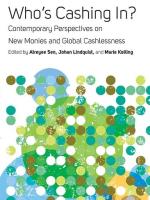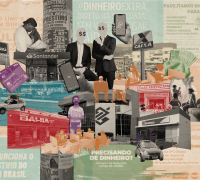Data extractivism for poverty alleviation and “Tech for Good”

The “Tech for Good” movement promotes a range of corporate and data-driven initiatives focused on the inclusion of people who have not previously had access to services such as microinsurance, banking, and development aid. However, the inner worlds of Big Tech, credit ratings, and corporate banking are notoriously hidden from public view. The rapid expansion of Tech for Good initiatives relies on the harvesting of information on people’s social lives and relations. This information is quantified and converted into valuable data that enables financial services while also extracting financial value and speculative profits. In this seminar, three speakers will discuss this interpenetration of data extraction into public social policy and development aid and the broader implications of private firms' current data practices and data-driven business models.
The seminar will offer insights from fieldwork in Europe, the US, and South America and offer reflections on how to access and research this “black box” of data practices and digital infrastructures despite technological complexity and companies’ nondisclosure agreements.
Speakers
Keynote: Caroline Schuster, associate professor, economic anthropology in the School of Archaeology and Anthropology, National University of Australia.
Speaker: Sofie Henriksen, PhD candidate, Unit of Migration and Global Order, DIIS
Speaker: Pernille Hohnen, associate professor, the research group Artificial Intelligence and Datafied Communication, Department of Communication and Arts, Roskilde University
Discussant: Marie Kolling, senior researcher, Unit of Sustainable Development and Governance, DIIS
-
14.00 - 14.10Coffee & tea
-
14.10 - 14.20Introduction by Marie Kolling
-
14.20 - 14.50Key note: “Parametric Planet: data capitalism and the dream of insuring a dying world," Caroline Schuster
-
14.50 - 15.05“Big Tech to the Rescue: The Silicon Valley visions of using ‘Tech for Good," Sofie Henriksen
-
15.05 - 15.20“Closed worlds of Open Banking: The use of Digital payments and personal data in Danish banks,” Pernille Hohnen
-
15.20 - 16.00Discussion and Q&A
-
16.00 - 16.30Coffee, tea & cake
The seminar took place on 22 November 2023 at 14.00-16.30 at DIIS.
This seminar is part of the DIIS seminar series DATA EXTRACTIVISM AND GLOBAL INEQUALITY.
The collection of data about people’s everyday lives and the extraction of value from this data has become a central feature of day-to-day operations by businesses, governments and non-governmental organisations alike who use algorithmic and data-driven tools. Data extractivism – a term coined in decolonial studies – situates the largescale collection of data we experience today in a long history of capitalism and colonialism. As such, contemporary data practices are seen as the continued extraction of value from human and ecological resources now through the harvesting of data. Rather than mediating inequalities, many of such data extracting schemes might be fueling inequalities across the globe. But what kinds of value are extracted from big data and for whom? And how can we study the practices, infrastructures, and implications of data extractivism through qualitative and/or ethnographic methods? Technological complexity, nondisclosure agreements, and the private ownership of digital infrastructures often prohibit detailed insights into the operation and use of algorithms and big data. Opening new fields of inquiry, the black box of data extractivism, requires reflection on novel methods. But how can we understand the quantification of people’s lives beyond quantitative methods?
The seminar series Data Extractivism and Global Inequality sheds light on the diverse ways in which contemporary data practices and infrastructures are linked to historic and global inequalities and how they can be approached methodologically. Between September and December 2023, practitioners and researchers whose work addresses data extraction in areas such as digital humanitarianism, microcredit programmes, algorithmic credit assessment and welfare policies will join us to discuss the ways in which data extraction mitigates, enforces or produces forms of inequality.
The seminar series is part of the DIIS TECH research initiative on technology and power.
Sign up
DIIS Experts



